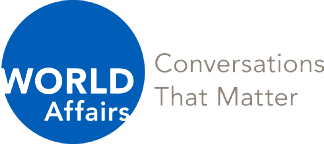REPUBLIC OF THE CONGO

The Emperor’s Old Clothes
President Denis Sassou-Nguesso of the Republic of Congo, sometimes called Congo-Brazzaville to distinguish it from the neighboring Democratic Republic of Congo, recently purchased an arsenal of weapons from Azerbaijan, a former Soviet republic.
The president’s critics fear that the more than 500 tons of weapons that he purchased, including 775 mortar shells and more than 400 cases of truck-mounted rockets, will be used to tighten his grip on power, the Organized Crime and Corruption Reporting Project reported. Similar Azerbaijani arms shipments helped him crack down on protesters who argued that he rigged the vote to win reelection in 2016.
They are watching to see if there is a repeat performance.
Citizens of the Republic of Congo head to the polls on March 21 to elect a new president. Sassou-Nguesso, 77, is almost certainly to win office because the vote will be a sham, argued Financial Times columnist Neil Munshi, who noted that the president changed the electoral law in 2015 to remove a 70-year-old age limit on candidates.
Sassou-Nguesso is called the “emperor” because he has held office for a total of 36 years that does not include a period between 1992 and 1997, noted the Africa Report. In those five years, former President Pascal Lissouba, the first democratically elected president of the republic, ruled until Sassou-Nguesso ousted him in a civil war.
Now, many including the Catholic Church have sounded alarm bells with its leaders saying they had “serious reservations” about the elections because of coronavirus prohibitions to stop the spread of the virus as well as questions about the integrity of the election system.
And the weapon purchases likely angered many Congo-Brazzaville voters. As France 24 explained, the country possesses vast resources even as many areas lack power – the country has a vibrant oil industry that includes massive multinational companies reaping billions in profits. Sassou-Nguesso has promised to build a new refinery to satisfy demand, Africa News added. He doesn’t say much about electricity, though.
Unemployment and low pay are other issues plaguing the country.
Meanwhile, overfishing has forced local fishermen to capture sharks to sell to Asian companies that prize shark fins for soup, the BBC wrote. But now fishermen are catching fewer sharks, too, having misused this resource.
These challenges are one reason why opposition leader Mathias Dzon, who was finance minister under Sassou-Nguesso from 1997-2002, believes the country needs change. “Sassou will be sanctioned at the ballot box,” said Dzon in an interview with Deutsche Welle.
That’s not likely, observers say.
Even so, many hope Sassou-Nguesso didn’t order those weapons because he was similarly pessimistic about the vote.




